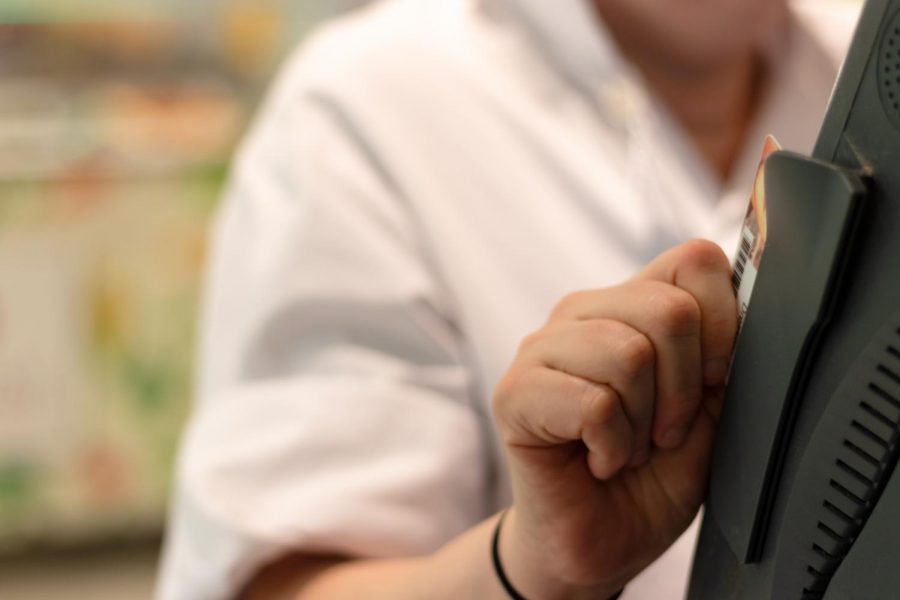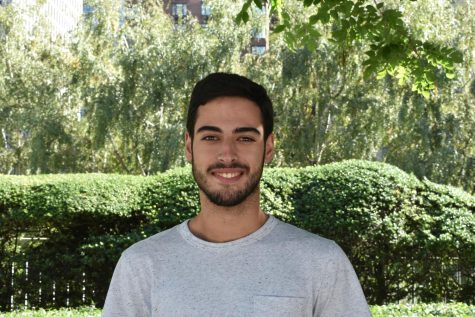Don’t Feed the Pigeons, Feed the Rams
Students with meal plans can now donate their unused guest meal passes to students in need.
February 11, 2020
Food insecurity is a situation in which a person is unable to access a sufficient amount of affordable and nutritious food. Its prevalence on college campuses has been the focus of a few researchers since the early 2000s with the most recent study conducted by The Hope Center at Temple University in 2018. This study, published in April 2019, reported that of almost 86,000 surveyed college students across the nation, 45% had been food insecure within 30 days prior to the survey. Some universities, of course, offer services to help combat the issue, like campus pantries and food banks.
At Fordham, Campus Dining and Campus Ministry are working together on developing a donation program that will help Fordham students going through food insecurity receive meals. You may have seen signs for it around Schmeltzer Dining Room, Ram Café or the Community Dining Room, or briefly read about it in the latest email from Fordham Hospitality under “Meals From Rams, For Rams.” But what is meal donation, and how does it work?
The idea behind meal donation on Fordham’s campus is that students will be able to donate their unused guest meal passes, which the Office of Campus Ministry will then distribute to students in need. For those who are unsure whether or not they have guest meal passes, chances are that if you live at McKeon or have a resident meal plan, you have some: Unlimited Platinum and Unlimited Silver have 8 guest meals; Block 250 has 5 guest meals; Block 225 and Block 200 have 4 guest meals.
And if you were unsure, there is also a high chance that you have not used any of them. According to Deming Yaun, the Dining Services Contract Liaison at Fordham, “The way the budgeting works is those (unused) guest meals could be transferred to someone else, if a student authorizes them,” by being moved into a “meal bank,” and made available if a food insecurity situation arises. In order to authorize the transference of guest passes, students can go to the Campus Dining website and fill out a form to donate.
The inception of Meals From Rams, For Rams began last fall with what Yaun said was the appearance of “awareness of students with food insecurities … within the last couple of years,” and the question of whether there is a way to help students who suffer from food insecurities. Upon researching what programs other universities had to offer, Yaun and his team discovered several programs related to students with meal plans donating meals. Looking at the way Fordham’s meal plans are set up, there is certainly room for students to donate their unused meals.
Of course, most students also end the year with several unused dining dollars. Yaun and those involved with the program’s development have also been seeking other ways for meals to be donated. This includes creating opportunities for students without meal plans to make donations, without becoming too much like a charity organization. As Yaun said, “When you go from a simple prepaid meal that can be donated to monies coming in to buy meals, it just becomes a little bit more complicated. But of course, it would be great if the program could move in that direction.”
With something as sensitive as food insecurity, it can be difficult for those in such situations to get help. Meals From Rams, For Rams will be offered at the Westchester, Lincoln Center and Rose Hill campuses, and has been seeking donations since early December of last year. The hope is that if any campus faculty, including deans, professors and administrators, become aware of a student’s situation and if it is appropriate, they would then privately connect the student with Campus Ministry to receive proper aid. Meals From Rams, For Rams is not meant to be students’ long-term solution to their food insecurities, but instead, as Yaun put it, “a stop-gap measure, which can relieve them of the immediate hunger … while they seek avenues to help themselves out of the situation.”
Although the program is still developing, without enough donations, meal distributions can not yet begin. Campus Dining and Campus Ministry hope for and look forward to its success, both in combating on-campus food insecurity and in helping members of the Fordham community who need it most.










